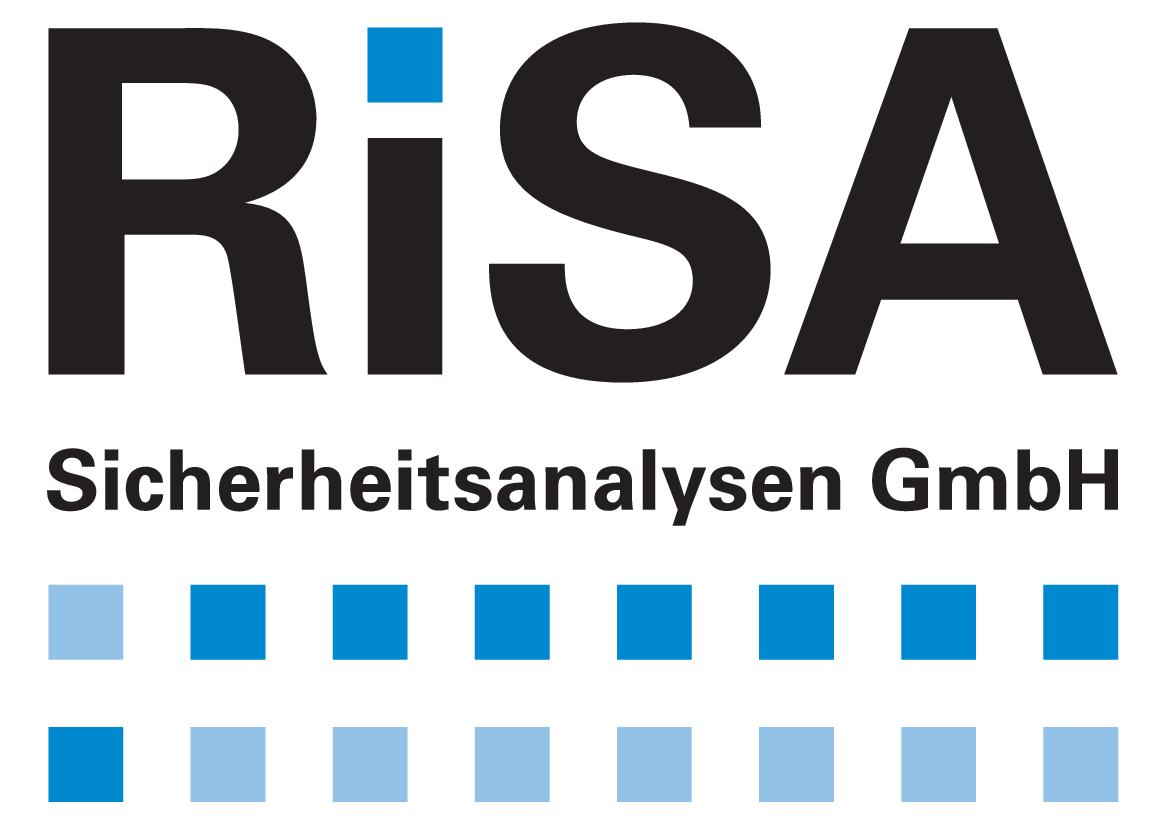The National Centre for Scientific Research "Demokritos" (NCSR “Demokritos”) was established in 1961 and it is Greece's largest multidisciplinary research center, comprising of six institutes with approximately 180 researchers and over 500 research personnel. Τwo institutes are involved in the ARMADILLO project: the Institute of Nuclear & Radiological Sciences and Technology, Energy & Safety (INRASTES) and the Institute of Nanoscience and Nanotechnology (INN). INRASTES organizes its activities into four thematic divisions: Energy/Environmental Technologies & Safety, Nuclear Technology, Biodiagnostics, and Radiological Sciences & Radiopharmaceutics. Research at INN span a wide range covering advanced materials, nanotechnology, micro- and nanoelectronics, nanobiotechnology, and photonics. The researchers participating in the project have a longstanding collaboration focused on the development of analytical methods and microsystems based on optical biosensors. NCSR “Demokritos” serves as the project's coordinator, and delivers expertise in sensing technologies. As one of the technology providers for the ARMADILLO project, NCSR “Demokritos” will contribute existing knowledge and state-of-the-art capabilities and use prior experience in optical biosensor technology to develop portable, efficient, and user-friendly detection systems that can operate outside laboratory settings for accurate detection of gamma-hydroxybutyrate (GHB).
Netcompany S.A. is a leading European IT Solutions and Services company with proven expertise in conceptual system architecture and system design, advanced application development and integration / communication services, information portal management, communication services, and project management, offering innovative and added-value solutions of the highest quality to a wide range of international and national public and private organizations.
Netcompany leads ARMADILLO's data management and interoperability framework, ensuring seamless, secure, and harmonized forensic data exchange among law enforcement and forensic institutes. NCI also coordinates the project's dissemination, communication, and exploitation strategies, maximizing the project's visibility and adoption across Europe.
RISA GmbH, established in 1990 at the Technical University of Berlin, is a leading provider of specialized IT solutions focused on complex challenges in safety, reliability, and data management. RISA holds over 25 years of expertise in risk analysis, assessment and management across a wide range of sectors, including healthcare, pharmaceuticals, chemicals, energy, railways, automotive, aviation, and public sector projects. RISA GmbH aims to apply, adapt, and expand its risk assessment framework to generate Drug-Facilitated Sexual Assault (DFSA) susceptibility maps, enhancing the project’s approach to security and risk management. This will involve creating a risk framework based on machine learning models such as Random Forest or Extreme Gradient Boosting. RISA GmbH also has the role of Workpackage Leader in Dissemination, Communication and Exploitation and the role of Task Leader in IPR & Innovation Management and Market Analysis and Business Modelling.
Jobst Technologies was founded in 2002 and focuses on research, development and manufacturing of miniaturized sensors, sensor components and modules. We are part of the Innovative Sensor Technology IST AG and Endress+Hauser groups. Our core expertise is providing biosensors for the biotechnology and biomedical industry. Our enzymatic biosensors for glucose, lactate, glutamine and glutamate are considered best in class by our customers. These sensors are, e.g, applied in clinical analyzers, cell and gene therapy, organ transport, and numerous other applications worldwide serving those in need. In ARMADILLO, we provide unique expertise in enzyme-based micro-sensors and assays, micro-fluidics, and micro-assembly.
Abcalis with its vision of a world without the use of animals for diagnostic antibodies, the biotech company Abcalis belongs to the pioneers of animal free antibody production via modern phage display technology.
Abcalis was founded in Braunschweig, Germany, in 2019 and has 9 employees working on different antibody discovery and engineering projects among others two EU projects.
One of them is the Armadillo project: Here, Abcalis develops GHB-specific antibodies for the specific detection of GHB in human specimen as part of the work package 3 „Design and Development of In-Situ Detection Systems“.
ThetaMetrisis, specializes in design and development of turnkey solutions for the non-destructive characterization of coatings in the sub-1nm to 3mm thickness range. Its products are based on reflectance and transmission spectroscopy technology and are renowned for their high-quality construction, measurement precision, and repeatability in both laboratory and field environments and a wide range of diverse applications such as: semiconductors, coatings, sensors, packaging etc.
These products are extensively used by industries and research organizations all over the world. ThetaMetrisis owns significant knowhow in the design and realization of bioanalytical readers and biosensing tools that have been successfully evaluated at the Point-of-Need in the related fields (Hospitals, Bioanalytical labs, Food processing industries) for the rapid and accurate detection of health biomarkers and harmful substances in food. In ARMADILLO, ThetaMetrisis will design and develop the portable reader for the quantitative determination of GHB at the Point-of-Need. The reader will be fully automated and easy-to-use by non-specialized personnel, including all the necessary optical, mechanical and electronic parts.
Arthur’s Legal, Strategies & Systems (‘ARTHUR’) is the independent, global strategic legal firm & knowledge partner. It covers the unique combination of technology, strategy, impact, ethics & law focusing on (inter)national, regional and global strategy & policy aspects in this Digital Age.
ARTHUR is Expert Advisor to public & private sector organisations within the EU, EEA, UK, NATO allies and friends, on Digital Ecosystems, Data, IoT, AI, Robotics, Computing, Spectrum, Dynamic Attributes, Risk, Safety, Cybersecurity, Privacy, Trust, Dynamic Assurance, Digital Sovereignty and Accountability.
It is member of the European Alliance for Industrial Data, Cloud & Edge where it leads the Digital Sovereignty Taskforce, Cybersecurity Taskforce and the Taskforce on Common Trust Principles for Digital Ecosystems. Its founder is Expert Member of Expert Group of European Commission on Data Sharing & Computing Continuum.
ARTHUR is active as partner, security respectively strategic advisory board member and ethics and compliance manager respectively DPO to multiple European projects on Societal Challenges, Data, Trust, Security, Privacy, Accountability and Risk in Digital Ecosystems.
In Project ARMADILLO, ARTHUR is leading data management, legal and ethics analysis, while also actively contributing to user requirements, reference architecture, collection and sharing of forensic evidence, pilot demonstrations, validation and strategic exploitation.
SINOPSIS SOCIALLY INTEGRATED INNOVATION S.R.L is a SME focused on achieving measurable social impact through comprehensive assessments, socially integrated innovations, and inclusive practices. As a partner, its main activities include conducting social impact assessments and fostering social innovation by engaging end-users directly. Its work integrates insights from social sciences and humanities, with a strong emphasis on gender studies, ensuring that various perspectives are considered in addressing societal challenges. SINOPSIS brings expertise in integrating gender aspects within projects, as well as conducting risk assessments and estimating impacts in complex social contexts. In the ARMADILLO project, SINOPSIS aims to contribute by developing and testing sampling methodologies that are responsive to gender differences. By collaborating with experts in social sciences, gender studies, and forensic sciences, it strives to refine these methodologies for more inclusive and accurate results. Its participation reflects their commitment to advancing gender-sensitive practices in research and assessment, supporting ARMADILLO’s goal of creating a comprehensive, gender-inclusive framework for forensic evidence procedures.
The Institute for Corporate Security Studies (ICS) specializes in systemic risk management, cybersecurity, education, research, and advisory services. With a strong emphasis on critical infrastructure and essential service providers, ICS prioritizes risk assessment, scenario analysis, business continuity planning, and awareness programs. Its key functions include developing policies, designing operational procedures, establishing standards, and implementing mitigation strategies, as well as conducting cybersecurity penetration testing and brand protection initiatives. Through strategic governance and guidance, ICS promotes a balanced approach that aligns business efficiency, digital transformation, cybersecurity, and brand protection, supporting a holistic approach to corporate security.
Harokopio University of Athens (HUA) is a non-profit, public higher education institution located in Athens, Greece, recognized for its commitment to research excellence and innovation. Its Department of Informatics and Telematics (DIT) is dedicated to advancing the field of computer science, with a particular focus on cutting-edge research in Information and Communication Technologies (ICT). The department is actively involved in projects funded by both international organizations and the Greek state, contributing to a wide range of scientific advancements. Within the ARMADILLO project, the DIT team leverages its extensive expertise in computer vision, image analysis, and artificial intelligence to develop novel methodologies for integrating and analyzing complex data sources. Their work emphasizes the creation of reliable, safe, and legally robust forensic evidence by applying sophisticated data fusion techniques, as well as the use of advanced neural network architectures for precise chemical and material analysis, such as Raman spectra interpretation.
The Center for Security Studies (KEMEA) is a think tank on homeland security policies and an established research center since 2005 (L. 3387/2005) within the Hellenic Ministry of Citizen Protection, aiming to support security policy implementations in Greece, at a strategic level.
Specifically, the activities KEMEA is involved in include a) research and development in the context of National and European projects in close cooperation with LEAs, working under the auspices of the Ministry of Citizen Protection b) training of practitioners in new systems and technologies and c) the certification of practitioners in private security professions at the national level, The Center also provides advisory and consulting services to the Ministry of Citizen Protection, as well as other Public and Private authorities, on safety and security issues.
A main objective of KEMEA is to bring together all national Law Enforcement Agencies (Police, Fire Service, Coast Guard, Civil Protection agency, etc.), enabling collaboration, interconnecting them with corresponding agencies, research institutions and the industry from around Europe. KEMEA is actively engaged in the EU funded research project ARMADILLO in the role of Ethics Expert, subsequently contributing also as a research institution.
The Polish Platform for Homeland Security (PPHS) is a dedicated team of professionals and experts in the security field, committed to enhancing security in Poland and Europe. With extensive experience in EU-funded projects, PPHS is known for its ability to collaborate across sectors, bringing together security practitioners, law enforcement agencies, academia, public institutions, and EU agencies. Its mission is to develop and support modern tools, technologies, and legal and organisational solutions that address pressing security challenges. By working closely with around 250 security consultants, PPHS excels at identifying gaps and needs, defining requirements, managing user communities, and conducting training, testing, and validation activities. Additionally, the organisation is adept at leading communication, dissemination, and exploitation efforts, ensuring the broad impact of its initiatives.
In the ARMADILLO project, PPHS brings the critical perspective of end-users, ensuring the project aligns with their real-world needs. The organisation is actively involved in collecting input for impact analysis, defining user requirements, contributing to the project’s reference architecture, and leading pilot demonstrations and validation campaigns. Leveraging its extensive network and expertise, PPHS ensures that ARMADILLO delivers practical, effective solutions for security practitioners and stakeholders across Europe.
The Ministry of the Interior of Finland (MOI) is responsible for internal security and migration and forms part of the Government. The Ministry’s key tasks include law drafting as well as strategic planning and steering within its branch of government. The National Police Board, the Finnish Border Guard, the Finnish Immigration Service, the Emergency Response Centre Agency, the Emergency Services Academy Finland, the Crisis Management Centre Finland, and the Finnish Security and Intelligence Service operate under the Ministry of the Interior. The Ministry of the Interior employs research and development staff and officials responsible for oversight of legality in the Ministry’s branch of government. The Ministry’s three key duties are: Preparing legislation concerning the police, rescue services, emergency response centre operations, border control, maritime search and rescue, and migration; Managing the performance of agencies and institutions in the Ministry’s branch of government; Dealing with international and EU affairs that fall within its remit.
Within the ARMADILLO project, MOI will support the validation and real-world testing of ARMADILLO’s portable GHB detection technologies, particularly in pilot demonstrations in Finland, where the focus will be on identifying GHB in beverages to combat drug-facilitated crimes. Additionally, MOI will ensure that the forensic evidence collected through ARMADILLO’s solutions meets legal standards for court admissibility, while also contributing to policy recommendations and security strategies that enhance forensic practices across Europe. Through its involvement, MOI will help ensure the practicality, reliability, and law enforcement integration of ARMADILLO’s innovative forensic tools.
The Murcia Police Department is a key institution in safeguarding public safety institution within one of Spain's largest municipalities. As a forward-thinking law enforcement body, we play a vital role in ensuring the safety, security, and well-being of the community by addressing crime prevention, urban security, and citizen protection and leveraging innovative solutions to address emerging public safety challenges.
Our primary responsibility within the ARMADILLO project is to offer our expertise to technology developers and from the field of sociology and criminology to be able to make an approach based on scientific evidence to the underlying problem of sex crimes facilitated by chemical submissive drugs and the development and execution of Pilot Scenario 2, which aims to test and validate advanced technologies for detecting GHB in both alcoholic and non-alcoholic beverages.
This critical role involves simulating real-world conditions in nightlife and social venues to evaluate the effectiveness of detection tools. Additionally, we will provide operational feedback to refine the usability of these technologies, ensuring they meet the practical needs of law enforcement and public safety stakeholders.
The General Police Inspectorate (GPI) of the Republic of Moldova serves as the central administrative and control body for the Police, with national authority and both specialized and territorial divisions. The primary mission of the Police is to protect individuals' fundamental rights and freedoms by maintaining, ensuring, and restoring public order and safety. This includes preventing, investigating, and solving crimes and misdemeanors. As the end-user for the ARMADILLO project, the GPI plays a key role in leveraging the project’s results, outcomes from the demonstrators, and identified best practices. These insights are crucial for designing national or regional policies aimed at enhancing forensic capabilities, improving criminal identification, and, most importantly, preventing crime.
Regional Police Headquarters in Radom is an uniformed and armed force which fulfilling their tasks under the Act of Police (6th of April 1990). The area of operations in Mazovian voivodship – (excluding the territorial competence of the Metropolitan Police Headquarters– Warsaw and towns around) – this is the area of 29 500 km ². The Masovian garrison employs 6500 officers and employees of the Police. There are: Regional Police Headquarters, 4 City Police Hqeadquarters and 24 District Police Headquarters.
In the Armadillo project, KWP Radom, as LEA, has the role of end user. In addition, it is the leader of Task 5.2.1 of WP5 - 1 st pilot. By participating in the project as an LEA, it will increase its capacity in drug-related forensic analysis, and in particular in forensic analysis for the detection of GHB substances. The participation of KWP Radom as a practitioner in the project will have an impact on the exploitation of the project results and the identification of best practices in advanced forensic techniques and their integration into cross-border investigations and thus crime prevention in this area.
CENTRIC is a multi-disciplinary and end-user focused centre of excellence, located within Sheffield Hallam University. The mission of CENTRIC is to provide a platform for researchers, practitioners, policy makers and the public to focus on applied research in the Security domain. CENTRIC steps in as a Work Package leader for ARMADILLO’s Pilot Demonstration and Validation Campaigns, leading multiple Tasks within the WP, as well as Stakeholder Engagement Task leader. CENTRIC will actively apply its expertise in social research within WP2 of the project by leading the GHB Impact Estimation and Modus Operandi task of ARMADILLO, expanding the current understanding of GHB-facilitated crimes. CENTRIC will also assist the formulation of policy recommendations towards improved operational standards for collection and in-situ analysis of GHB.















-cwmox9.png)

